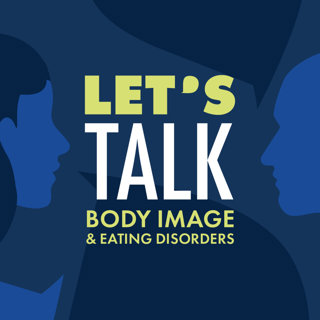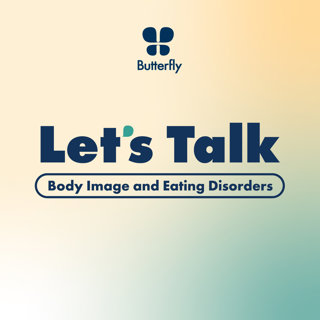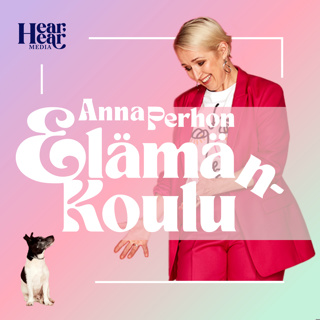
In Depth with NEDC director Beth Shelton
Dr Beth Shelton is a psychologist and long-time director of the National Eating Disorder Collaboration (NEDC), leading a team that develops national standards for preventing and treating eating disorders and works actively to build the system of care. As a highly respected professional in the field, we asked Beth to explain the different diagnoses for eating disorders, the possible causes, and what she believes constitutes “normal” eating. First, Beth makes one thing clear: An eating disorder is a mental illness with serious physical and mental health consequences for the person affected. It causes a lot of dysfunction and suffering. Though there are several separate diagnoses for eating disorders, they are more similar than they are different. Absent recovery, many people move from one form to another. Different eating disorders often manifest from similar risk factors, for example, genetics or psychological profiles. She also confirms that these conditions do not discriminate. We too often default to thinking about an overly thin teenage girl, but an eating disorder can affect anyone; we don’t see it. An eating disorder is also not a choice – perhaps beginning a diet to lose weight initially may be a conscious decision, but once the eating disorder takes hold, the person affected has lost control of their health and needs support. Beth puts it best: “No one I've ever worked with or spoken to about an eating disorder would ever choose one or choose one for anyone else.” Fortunately, she and numerous others in the sector are working tirelessly to help, not only for those with lived experience but for their loved ones and carers too. Find out more about NEDC Eating disorders explained Find out more about Parliamentary Friends Group for Eating Disorder Awareness Find a Professional See omnystudio.com/listener for privacy information.
14 Maalis 202324min

All about #BodyPride as an LGBTQIA+ human
We’re all subject to continuous appearance-based pressures which impact our self-worth. The LGBTQIA+ community is no different. In fact, it’s a community that faces unique challenges regarding pressures that affect body image. And, for some people, it can escalate during Mardi Gras season. “People will go on a big shred or a big diet for the month,” says one of Australia’s most popular LGBTQIA+ content creators, Matt, also known as Alright Hey. “As soon as Christmas is over, it starts. Mardi Gras lands around the start of March and people think they have two months to totally transform their body.” Author, podcaster, and creator Allira Potter says much of the pressure often comes from others in each community. “I feel it 100%. Being a lesbian, I have this pressure to dress and act a certain way.” Non-binary and queer creator, Jonti Ridley says appearance-based pressure is unhelpful to everyone. “A large facet of the queer community is enforcing these standards that we didn’t even come up with. We don’t even like them. They’re not for us.” Actor and creator Jeff van de Zandt has this to say: “Mardi Gras prep diets come from a place of hate,” he says. “They come from hating oneself. But Mardi Gras is a celebration of love, a celebration of pride, of all these positive things. It’s just backward to me.” Mardi Gras is a seminal time for 78er Peter Murphy who was at the very first Mardi Gras, when he was seriously injured by police as they attempted to shut it down. He says it’s not compulsory to do anything special around your appearance at all. “I’m going in comfortable clothes and comfortable shoes and I still expect to have a great time.” Listen to these fascinating and enlightening guests as they explore body and beauty ideals within the LGBTQIA+ community, how pressures to conform can manifest, and why they’re choosing to participate in WorldPride with BodyPride, starring their unique, kind, and most authentic selves. CHECK OUT BUTTERFLY’S BODY PRIDE CAMPAIGN CHECK OUT OUR LGBTQIA+ RESOURCE HUB FOLLOW ALRIGHT HEY FOLLOW ALLIRA POTTER FOLLOW JONTI RIDLEY FOLLOW JEFF VAN DE ZANDT QUICK GUIDE TO TERMS – LGBTQIA+See omnystudio.com/listener for privacy information.
14 Helmi 202325min

In depth with early childhood body image expert Dr Stephanie Damiano
It goes without saying that we want to give our young children the best start. We also know from years of research that negative body image can impact almost all life outcomes – including relationships, education, and careers. So how do we protect our children from developing a negative body image? And when should we start? The answer could shock you. Dr Stephanie Damiano is a psychology researcher and an expert in this space. “We see quite consistently that around the age of three, children start to develop pretty strong weight attitudes and weight stereotypes around bodies,” she says. "They tend to attribute positive characteristics to thin bodies and negative characteristics to large bodies. Their body image starts to develop a little bit later, around the age of four.” Biological, psychological, and socio-cultural factors contribute to the development of positive or negative body image. In the socio-cultural space, our kids’ attitudes are shaped by family, the media, and their peers – and this is where adults can influence them. Dr Damiano also leads Butterfly’s pioneering Body Bright program that is available free to primary schools. Listen to her chat with Sam about helping young kids establish a positive relationship with their bodies for their future well-being and success. find out more about Butterfly body bright butterfly body bright - information for families butterfly body bright - information for schools for educators - register your schoolSee omnystudio.com/listener for privacy information.
3 Tammi 202324min

How can we be kind to our bodies this summer?
The summer holidays usually come with some expectations. We meet the extended family for a holiday meal. We wear fewer clothes in the summer heat. We make new year’s resolutions pushed by the diet industry. We smile and nod at the inevitable comments about our appearance from well-meaning family members. And we’re expected to find all of this a joyous time of year. But it’s events like these that make the summer holiday period difficult for some people, particularly anyone experiencing negative body image or eating disorders. “How do people look compared to how they looked last year,” says Tania Nichols from Butterfly’s National HelpLine. “Are they bigger or smaller? There’s a lot of anxiety around potential judgement from others and the inevitable comments that go with them.” “Most of us, in general, start to feel the stress around getting together with people we haven't seen for ages,” Tania tells us. “And of course, that's magnified for people who are experiencing disordered eating and eating disorders because all of these festivities, of course, happen around food.” Jennifer White suffered from an eating disorder for years and says it was the holiday get-together over food that would always stress her out. “In the Australian culture, people feel comfortable, rightly or wrongly, commenting on how people look, what people wear, and what people eat,” she says. “At functions that I have gone to in the past, whether it be family, friends, work, whatever, it's just something that people say without really having a second thought.” Clinical psychologist Chris Cheers tells us negative body image can have a huge impact on how people cope with difficult situations. “People connect the way their body looks with their ability to be liked,” he says, “Or to form relationships with people or to get that boyfriend or girlfriend or get that partner, especially if you're single. There seems to be this pressure of you needing to look a particular way to make friends.” But he says by being aware of a few things, we can make a world of difference for our family and guests. “I think a really helpful question to ask someone is what would support look like for you right now. And we sometimes feel pressure to know how to support people too. And sometimes that can stop us from reaching out or saying anything.” He says, on a personal level, you can “give yourself permission to notice those expectations,” he says, “But choose instead to go inward, and be guided by what's important to you, be guided by your body and what you need.” For more tips and advice, go to Butterfly’s Summer of Kindness page. https://butterfly.org.au/get-involved/campaigns/summerofkindness/ See omnystudio.com/listener for privacy information.
13 Joulu 202226min

In Depth on Perfectionism with Prof Tracey Wade
The drive for perfectionism is unusually common in people experiencing body image issues and eating disorders. Perfectionism is quite different from the drive to improve, which is an appropriate and healthy desire. Perfectionistic people, however, believe that "perfect" is possible—and the problem is that it's not. This sets up the perfectionist for continual frustration and disappointment, which in turn leads to mental health issues, including eating disorders. In this episode, our host Sam Ikin sits down with Professor Tracey Wade, who has spent 30 years researching the intersection of perfectionism and eating disorders. "As a perfectionist, you tend to have high but impossible goals," she says. "And when you inevitably don’t meet them, then self-criticism and depression occur. Perfectionism actually takes people away from success." In fact, of all the difficult issues it causes, perfectionism has a particularly strong relationship to eating disorders. Professor Wade spent time with Sam to explore what distinguishes perfectionism from the normal drive to achieve, how it harms health and wellbeing, and how we can learn to think differently for ongoing recovery. Find out more about Professor Tracey Wade See omnystudio.com/listener for privacy information.
1 Marras 202220min

In Depth with occupational therapist Dr Elysa Roberts
In this episode, we sit down with occupational therapist Dr Elysa Roberts to discover why OT can be effective in treating eating disorders. First, what is an occupation? It’s generally defined as “any activity in which one engages”, which means it’s a lot more than just a job. An occupation can include eating, exercising, working, shopping, socialising, parenting, education, time spent on spiritual practice... the list just goes on. Occupations are all the ordinary and everyday activities of life. An eating disorder can be considered an occupation, but one that isn’t good for your health or well-being. Recovery could also be defined as an occupation, and that’s why Occupational Therapists can play a key role in a person’s treatment team. Dr Roberts, an OT since the early ‘90s, says that she realised the importance of OT as a treatment modality through her own lived experience. “I'd go through waves of treatment, be discharged, recover, and then go through it again all while establishing my OT career. Unfortunately, what wasn't happening in those days was strong relapse prevention programmes, or relapse prevention being included as part of recovery.” Now things are changing. Dr Roberts describes how OT can help – first by bringing a unique and holistic understanding of an individual’s mental, physical and sensory profile, but also by co-designing practical interventions that can make all the difference to ongoing recovery. If you think you need to find out more about occupational therapists and how they could help you or someone you love, Butterfly could help. Go to Butterfly.org.au or call the Butterfly helpline on 1800 ED HOPE - 1800 33 46 73. See omnystudio.com/listener for privacy information.
4 Loka 202226min

Young people and body image - all we don't know
As parents or carers of young people, we like to think we know what's important in young people’s lives. But there's no way to tell what's really going on in their heads. If we're trying to understand young people as a group--their perspective in relation to the world and the culture right now--it's even harder. That's where Mission Australia's Youth Survey comes in. “It’s the largest national survey of young people in Australia,” says Rachel Christie, head of their Centre for Evidence and Insights. “We get around 20,000 responses from young people each year. It’s a broad-brush survey that tries to understand young people’s aspirations and concerns; what they value, what’s worrying them, what they’re excited about.” One eye-popping finding is that for the past six years, body image has been one of the top four issues for young people. Since 2017, it’s been one of the top three. The problem is we’re not entirely sure why. So Butterfly is on a mission to investigate further, because the Mission Australia survey doesn’t tell us enough. It’s more like a metal detector, admits Christie. Helen Bird, Butterfly’s Education Services Manager, agrees. “If we have better data, then we can better target our education and prevention efforts. We want to do a really deep dive into the body image experiences of young Australians from 12 to 18 years old, so we're launching our own survey this year.” “I struggled a lot with my relationship with my body in the teen years,” says Clare Hennessy, a Sessional Presenter for Butterfly Body Kind. “The comparison voice that was opened up in me as a kid just got worse as a teenager.” We do know that our bodies are not the problem, it's our thoughts and feelings about them that cause us distress. With that in mind, the more we know about young people’s experience of body image, the more able we’ll be able to support body kindness – both towards themselves and to others too.See omnystudio.com/listener for privacy information.
13 Syys 202232min

In Depth with Worimi Woman, Dr. Liz Dale
Liz Dale is a Worimi Woman and Doctor of Psychology whose work involves Aboriginal and Torres Strait Islander people’s lived experience of eating disorders and body image concerns, as well as Aboriginal approaches to wellness and care. A holistic approach is becoming increasingly accepted as key to ongoing recovery. However, many of us steeped in Western European treatment models are still figuring out what a holistic approach might actually mean. Dr. Dale believes that understanding and appreciating an Indigenous worldview can help. “Aboriginal ways of knowing, being and doing can enhance the mainstream treatment sector,” she says. To Aboriginal and Torres Strait Islander people, good health as more than merely the absence of disease, and social and emotional wellbeing is the foundation of both physical and mental health. A person’s whole life is involved: their physical, social, emotional, cultural, and spiritual well-being, as well as their connection to Country and community. “Australia is a very individualistic society,” says Dr. Dale. “That’s a huge contrast to Aboriginal culture, which is entirely collectivist. Our sense of self is inseparable from and embedded within our family and the members of our community. It’s connected to the Country that we’re from, and within that Country, we have access to all the knowledge that we need to understand how to live.” The problem is that, currently, Aboriginal and Torres Strait Islander people are up to three times more likely to experience mental health conditions and eating disorders than their non-Aboriginal peers. Dr Dale spent time with host Sam Ikin in this episode of Let's Talk in Depth to review why this is true, as well as how culture and community can support any person at risk.See omnystudio.com/listener for privacy information.
16 Elo 202220min






















